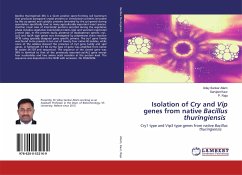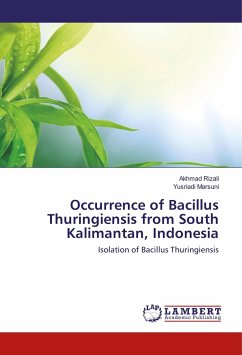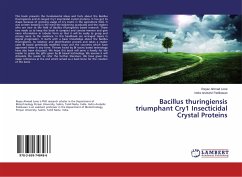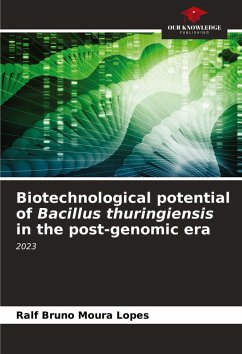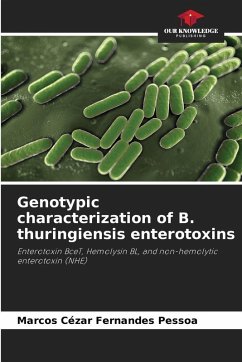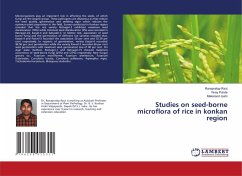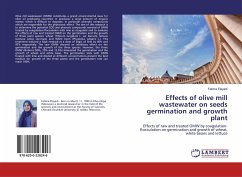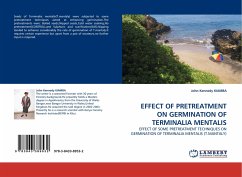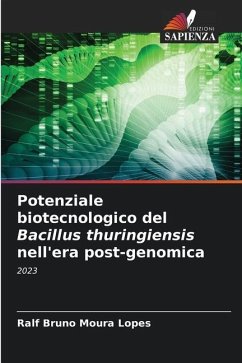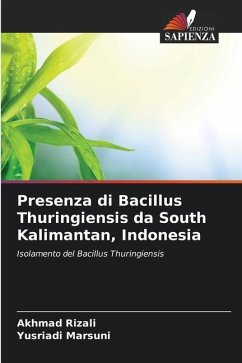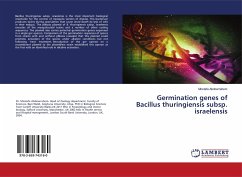
Germination genes of Bacillus thuringiensis subsp. israelensis
Versandkostenfrei!
Versandfertig in 6-10 Tagen
27,99 €
inkl. MwSt.

PAYBACK Punkte
14 °P sammeln!
Bacillus thuringiensis subsp. israelensis is the most important biological insecticide for the control of mosquito vectors of disease. This bacterium produces toxins during sporulation that cause larval death by lysis of cells in their midgut. The pBtoxis plasmid of B. thuringiensis subsp. israelensis encodes all the mosquitocidal toxins and a number of other coding sequences. The plasmid also carries potential germination genes organised in a single ger operon. Comparison of the germination responses of spores from strains with and without pBtoxis revealed that this plasmid could promote acti...
Bacillus thuringiensis subsp. israelensis is the most important biological insecticide for the control of mosquito vectors of disease. This bacterium produces toxins during sporulation that cause larval death by lysis of cells in their midgut. The pBtoxis plasmid of B. thuringiensis subsp. israelensis encodes all the mosquitocidal toxins and a number of other coding sequences. The plasmid also carries potential germination genes organised in a single ger operon. Comparison of the germination responses of spores from strains with and without pBtoxis revealed that this plasmid could promote activation of the spores under alkaline conditions but not following heat treatment. Introduction of the ger operon on a recombinant plasmid to the plasmidless strain established this operon as the first with an identified role in alkaline activation.





